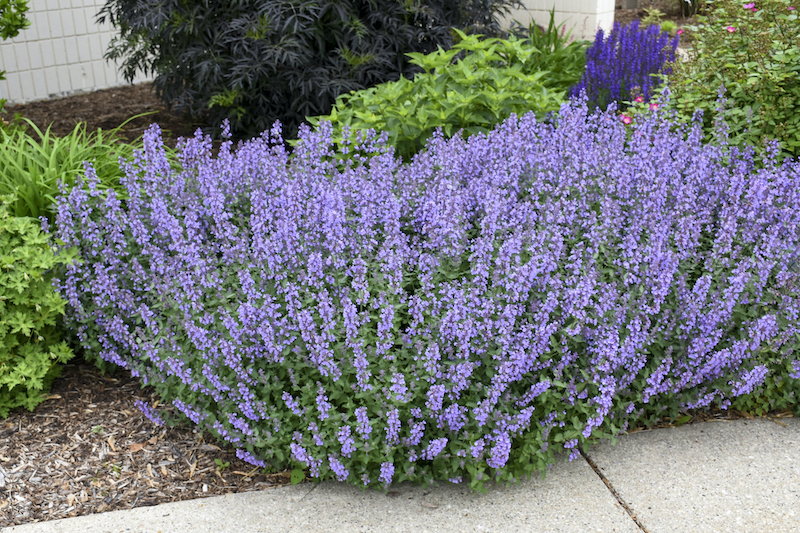Catmint is a perennial that prefers well-drained, lean soil and plenty of sunshine. Flowering starts late in the spring and can continue through the early fall. Catmint may fail to bloom well in overly rich soil or in too much shade. If you feel that the blooming vigor has decreased, there are some steps you can take to get your Catmint back on track.

Common Reasons Why Catmint Isn’t Blooming
Catmint grows best with as much sun as you can give it. If the growing position has become progressively shadier every year, it might be time to prune back nearby trees or to move the Catmint, which is by far easier. Low light levels will slow down bud formation and flower opening.
Avoid over-fertilizing, which encourages rapid growth of the foliage and stems, causing Catmint to become floppy and leggy at the expense of flower formation. The last issue is extreme heat. Often Catmint stops flowering during the hottest part of the summer and will send up new flower shoots once the cooler weather returns.
Pruning Catmint To Help It Bloom
Shearing Catmint back by half in mid-summer will not only help the plant stay compact and full, but also encourage it to form more flower spikes. Catmint responds well to pruning and will regularly produce two flushes of bloom.
Fertilizing Catmint To Help It Bloom
Catmint does not need supplemental fertilizing to bloom, but an annual application of a slow-release fertilizer will support the overall health of the plant. The fertilizer could be a ready-made organic granular mix or a 2-inch layer of organic compost spread around the base of the plant. Both types of plant food will slowly release vital nutrients to Catmint throughout the growing season.

Why Catmint Isn’t Blooming
- Too much fertilizer
- Lack of sunlight
- Needs to be cut back early in summer for a second flush of flowers
- Excessive heat slows down blooming
 |
Author Robbin Small - Published 7-14-2022 |
